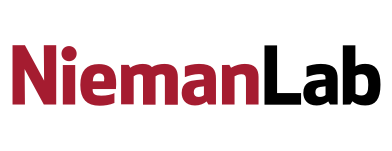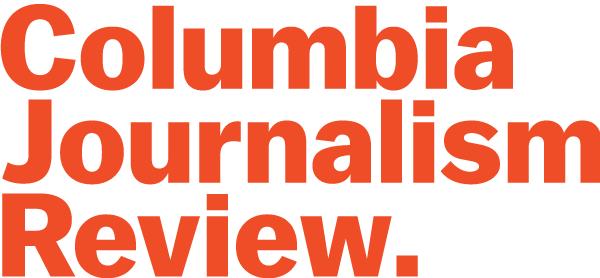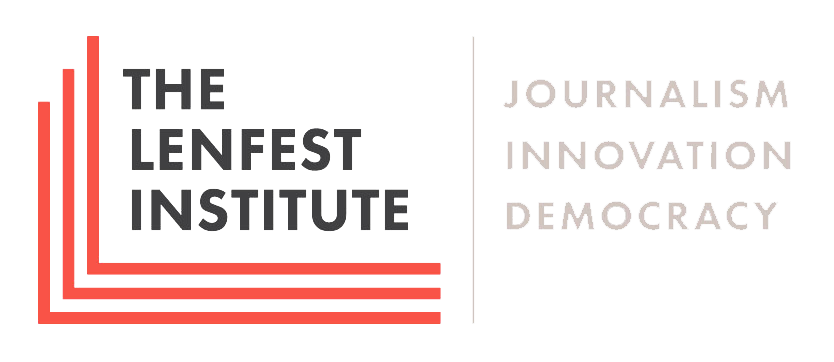One of the JDI’s goals is to help Stanford students plug in to the latest conversations about journalism and democracy, find relevant courses, get involved in research projects and know what events are coming up.
Follow the Discussion
Keep up with innovations, research and new conversations.
Take a Course
Learn from the best in their fields
Perspectives on American Journalism
An examination of American journalism, focusing on how news is produced, distributed, and financially supported. Emphasis on current media controversies and puzzles, and on designing innovations in discovering and telling stories.
BigLocal Journalism: a project-based class
This class will tackle data-driven journalism, in collaboration with other academic and journalistic partners. The class is centered around one or more projects rooted in local data-driven journalism but with potential for regional or national journalistic stories and impact. Students work in interdisciplinary teams to negotiate for public records and data, analyze data and report out stories. Some of the work may be published by news organizations or may be used to advance data journalism projects focused on public accountability. Students will gain valuable knowledge and skills in how to negotiate for public records, how to critically analyze data for journalistic purpose and build out reporting and writing skills. Students with a background in journalism (especially data journalism), statistics, computer science, law, or public policy are encouraged to participate.
Becoming a Watchdog: Law, Order & Algorithms
Data and algorithms are transforming law enforcement and criminal justice, a shift that is ripe for rigorous journalistic exploration. This class is centered around several empirical projects in criminal justice, with the goal of fostering greater understanding, transparency, and public accountability. Students work in interdisciplinary teams, using a combination of statistical and journalistic methods. Some of the work may be published by news organizations or may be used to advance data journalism investigations. Students with a background in journalism (especially data journalism), statistics, computer science, law, or public policy are encouraged to participate.
Specialized Writing and Reporting: Foreign Correspondence
Study how being a foreign correspondent has evolved and blend new communication tools with clear narrative to tell stories from abroad in a way that engages a diversifying American audience in the digital age.
The Dialogue of Democracy
All forms of democracy require some kind of communication so people can be aware of issues and make decisions. This course looks at competing visions of what democracy should be and different notions of the role of dialogue in a democracy. Is it just campaigning or does it include deliberation? Small scale discussions or sound bites on television? Or social media? What is the role of technology in changing our democratic practices, to mobilize, to persuade, to solve public problems? This course will include readings from political theory about democratic ideals – from the American founders to J.S. Mill and the Progressives to Joseph Schumpeter and modern writers skeptical of the public will. It will also include contemporary examinations of the media and the internet to see how those practices are changing and how the ideals can or cannot be realized.
Campaigns, Voting, Media, and Elections
This course examines the theory and practice of American campaigns and elections. First, we will attempt to explain the behavior of the key players — candidates, parties, journalists, and voters — in terms of the institutional arrangements and political incentives that confront them. Second, we will use current and recent election campaigns as “laboratories” for testing generalizations about campaign strategy and voter behavior. Third, we examine selections from the academic literature dealing with the origins of partisan identity, electoral design, and the immediate effects of campaigns on public opinion, voter turnout, and voter choice. As well, we’ll explore issues of electoral reform and their more long-term consequences for governance and the political process.
The Psychology of Communication About Politics in America
Focus is on how politicians and government learn what Americans want and how the public’s preferences shape government action; how surveys measure beliefs, preferences, and experiences; how poll results are criticized and interpreted; how conflict between polls is viewed by the public; how accurate surveys are and when they are accurate; how to conduct survey research to produce accurate measurements; designing questionnaires that people can understand and use comfortably; how question wording can manipulate poll results; corruption in survey research.
Free Speech, Democracy and the Internet
This course will cover contemporary challenges to democracy presented by the Internet. Topics will include disinformation, polarization, hate speech, media transformation, election integrity, and legal regulation of internet platforms in the U.S. and abroad. Guest speakers from academia and industry will present on these topics in each class session, followed by a discussion.
The First Amendment: Freedom of Speech and Press
Introduction to the constitutional protections for freedom of speech, press, and expressive association. All the major Supreme Court cases dealing with issues such as incitement, libel, hate speech, obscenity, commercial speech, and campaign finance.
Exploring Computational Journalism
This project-based course will explore the field of computational journalism, including the use of Data Science, Info Visualization, AI, and emerging technologies to help journalists discover and tell stories, understand their audience, advance free speech, and build trust. Admission by application; please email R.B. Brenner at rbbrenner@stanford.edu to request application.
Law, Order & Algorithms
Data and algorithms are transforming law enforcement and criminal justice, a shift that is ripe for rigorous empirical and narrative exploration. This class is centered around several data-driven projects in criminal justice, with the goal of fostering greater understanding, transparency, and public accountability. Students work in interdisciplinary teams, using a combination of statistical and journalistic methods. Some of the work may be published by news organizations or may be used to advance data journalism investigations.
The Politics of Algorithms
Algorithms have become central actors in today’s digital world. In areas as diverse as social media, journalism, education, healthcare, and policing, computing technologies increasingly mediate communication processes. This course will provide an introduction to the social and cultural forces shaping the construction, institutionalization, and uses of algorithms. In so doing, we will explore how algorithms relate to political issues of modernization, power, and inequality. Readings will range from social scientific analyses to media coverage of ongoing controversies relating to Big Data.
Media Innovation
This course will introduce students interested in computer science, engineering, and media to what’s possible and probable when it comes to media innovation. Speakers from multiple disciplines and industry will discuss a range of topics in the context of evolving media with a focus on the technical trends, opportunities and challenges surfacing in the unfolding media ecosystem. Speakers will underscore the need to innovate to survive in the media and information industries. Open to both undergraduates and graduate students.
Join or Follow a Research Project
Work at the front lines of innovation
- Big Local
- Big Local - JSK Local Impact Partner
- Stanford Computational Policy Lab
- Stanford Social Media Lab
- Toolkit for Journalists of Color
- Project Inventario
Big Local News is a foundational project of the Stanford Journalism and Democracy Initiative.
What need does it serve?
While most reporters and editors now embrace the importance of data journalism, few newsrooms have the expertise to move beyond basic spreadsheet analysis. As a result, accountability stories in the public interest go undiscovered and untold. Big Local News is here to help by: collecting local data from a variety of governmental sources; adding specialized data acquisition and cleanup tools; sharing the data with local, regional and national reporters; and archiving all data via the Stanford Digital Repository, managed by the Stanford University Libraries, with a commitment to long-term stewardship.
Though the Stanford Open Policing Project, the predecessor of Big Local News, had a national sweep, it was rooted in local data. Likewise, Big Local News rests on the belief that the best investigative stories often come from local reporters. The project collects local data to discover the regional or national patterns which can yield stories with even greater impact.
“We’ll go after data sets that are hard to obtain because they’re kept in disparate, scattered locations by multiple jurisdictions,” said Stanford computational journalist Cheryl Phillips, who is leading Big Local News and has incorporated the work into her teaching as the Lorry I. Lokey Visiting Professor in Professor Journalism.
What’s involved from a technology standpoint?
The data collected comes in myriad formats, from spreadsheets to PDFs to complex relational databases. Big Local News holds the data first in a separate server and then converts the information to a common format. A key partner is the Stanford Digital Repository, which collects metadata as well as the data itself and is mirrored to ensure nothing is lost. Putting the data into the repository guarantees preservation and promotes sharing.
The data processing is in Python and may at times use the programming language R, depending on the underlying data. A variety of technical challenges exist in processing data, especially when it comes to the ability to automate the work early on to save laborious effort on the part of the journalists. Developing tools to help journalists more easily analyze data is another goal of the project.
Storing the data is straightforward. Each data set in the Stanford Digital Repository has its own persistent url, making it easy for a news organization to provide data for deposit and then use that url to share the information with its readers. The repository holds both the raw data and processed data, as well as extensive read-me files and in some cases notebooks with the underlying code.
A public-facing website is being developed to provide an easy interface for selecting and downloading the data one wants. The site also will feature tutorials and story recipes, or how-to guides, from journalists who have successfully used the data in question.
“Once the data are collected, processed and disseminated, we will help journalists complete that last mile – taking the data and finding and developing stories,” Phillips said.
JSK Local Impact Partner
Big Local News, led by Cheryl Phillips, the Lorry I. Lokey Visiting Professor in Journalism at Stanford, collects, cleans and shares data so that journalists and researchers can discover and write stories about policies that affect local communities and how institutions are operating. With support from JSK, Big Local News has hired Eric Sagara, a senior data reporter with Reveal from The Center for Investigative Reporting, as a visiting senior data journalist for the 2018-2019 academic year. In this role, Sagara will take the lead in standardizing and analyzing data from localities across the country for Big Local News. He will help guide the process of training newsrooms to use the data and to use “story recipes” to create compelling narratives for their local communities. A public-facing website will provide an easy interface for journalists to select and download data as well as upload and share data they may collect. The site will feature tutorials from journalists who have successfully used the data. Sagara will also conduct workshops for local journalists in the coming year to help them make the best use of data in their reporting. “This support helps fill a critical gap for Big Local News,” Phillips said. “It also deepens our relationship with JSK at a time when collaboration is vital to the future of journalism.”
JSK Diversity Impact Partner
The toolkit provides journalists of color with website resources and a physical card deck to help them recruit allies in news organizations, and provides them with strategies to cope with working in predominantly white newsrooms. The effort is a project spearheaded by three members of the JSK Class of 2018, Jennifer Dargan, Michael Grant and Seema Yasmin.
JSK Accountability Impact Partner
Project Inventario is an open data initiative led by Barbara Maseda, JSK ’18, to collaborate with journalists working inside Cuba who are unable to access data and information for their stories due to government restrictions in the island nation. The project provides journalists in Cuba with data sets through a web portal optimized for their use.
Be a part of the conversation
Pairing Stanford’s wide array of departments, institutions and people with its location in the heart of Silicon Valley provides a variety of enlightening events to attend.





